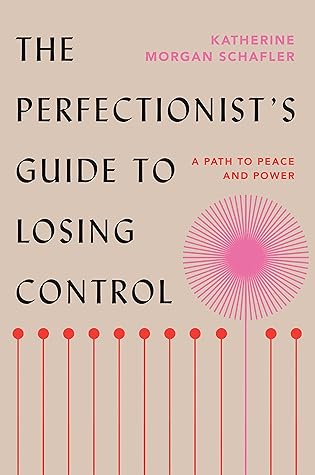More on this book
Community
Kindle Notes & Highlights
Read between
August 20 - September 3, 2023
Part of the urging to stamp out perfectionism in women arises because perfectionism is a powerful energy. Like every kind of power (the power of wealth, words, beauty, love, etc.), perfectionism—if you don’t understand how to harness it correctly—will corrupt your life. Perfectionism makes an excellent servant and a terrible master; let’s also be honest about that.
Mainstream discourse on perfectionism doesn’t include adaptive perfectionism. Instead, we decry and reduce the entire spectrum of perfectionism into its negative iteration.
never finish, something worthy of a lifetime of striving. To lead an inspired life yourself, you’re going to familiarize yourself with the perfectionistic impulses inside you, give yourself permission to embrace the energy of your perfectionism,
Perfectionists are bored by hedonism. Perfectionists love working. Perfectionists love a challenge. Perfectionists want to contribute, create, and grow.
As Thomas J. Watson said, “If you want to increase your success rate, double your failure rate.”
Can you really take pride and joy in what you’re doing even if you’re failing horribly at it, so much so that failing feels the same as winning? Yes, you
You don’t heal by changing who you are; you heal by learning how to be yourself in the world.
Maladaptive perfectionism only makes it worse. For Parisian perfectionists, maladaptive perfectionism looks like people-pleasing at the expense of pleasing oneself. For procrastinator perfectionists, it looks like waiting too long and then never doing it. For messy perfectionists, it looks like sabotaging yourself by saying yes to everything while committing to nothing. For intense perfectionists, it looks like operating as if achievement will give you what only connection can. For classic perfectionists, it looks like refusing to acknowledge that no matter how much predictability, exterior
...more
Behavioral perfectionism in a literal sense is doing something perfectly (scoring 100 percent on a test), but it can also include mandating yourself to behaviors you believe demonstrate the perfect way to act in the roles that you play (daughter, boss, woman, confident person, parent, etc.).
Behavioral perfectionism is adaptive when it inspires improved performance without cost to your wellness and without attachment to outcome—for
Power lies in accepting that while you can’t control what you feel or the fact that the past impacted you, what happens next is entirely up to you.
Punishment doesn’t work. When you punish someone, that person doesn’t learn how to change; they learn how to avoid the source of the punishment. If you are the source of your own punishment (through critical self-talk, for example), then you learn to avoid yourself by numbing out. Numbing out looks like overeating, overspending, overworking, getting caught up in drama, substance misuse, mindlessly watching TV or scrolling social media, and so forth.
You think that if you punish yourself, you’re proving to yourself that you mean business, you’re disciplined, you’re serious this time, you’re ready to do the hard work. First of all, it’s not difficult to create pain and make yourself feel like shit, so you’re not proving anything.
To punish yourself in the name of discipline, to deny yourself compassion in the name of accountability—these efforts are misguided. Can I promise you something? I promise you this: we are all in enough pain already.
We all need regular breaks and a little escapism. So how do you know if you’re restoring or numbing? Restorative activities help you regulate your emotions and gain perspective—taking a walk to “clear your head,” for example. Restoration regulates; numbing represses. After you restore, you feel reset. You feel recharged. Restoration feels good.
Numbing doesn’t make us feel good; it makes us feel nothing. When the numbing wears off, we still have our pain to answer to. While numbing is an attempt to bury our pain, blame represents our effort to throw our pain out with the trash.
Negative self-talk is a self-punishment and an extremely insidious one at that. If you make a habit of berating yourself, you’ll experience chronic guilt that morphs into shame. Unless you disrupt your
Here’s an example of a self-compassionate response: Yeah, that didn’t go well at all. I didn’t realize how nervous I’d feel. It’s okay that I felt nervous; I felt nervous because it was important to me. It’s not like I’m the only person in the world to ever stumble through a presentation. This happens. I’m still cringing thinking about it, but that’s not all I feel. I’m proud of myself for trying something I’ve never done before, and now I’m curious about what makes someone a good presenter.


